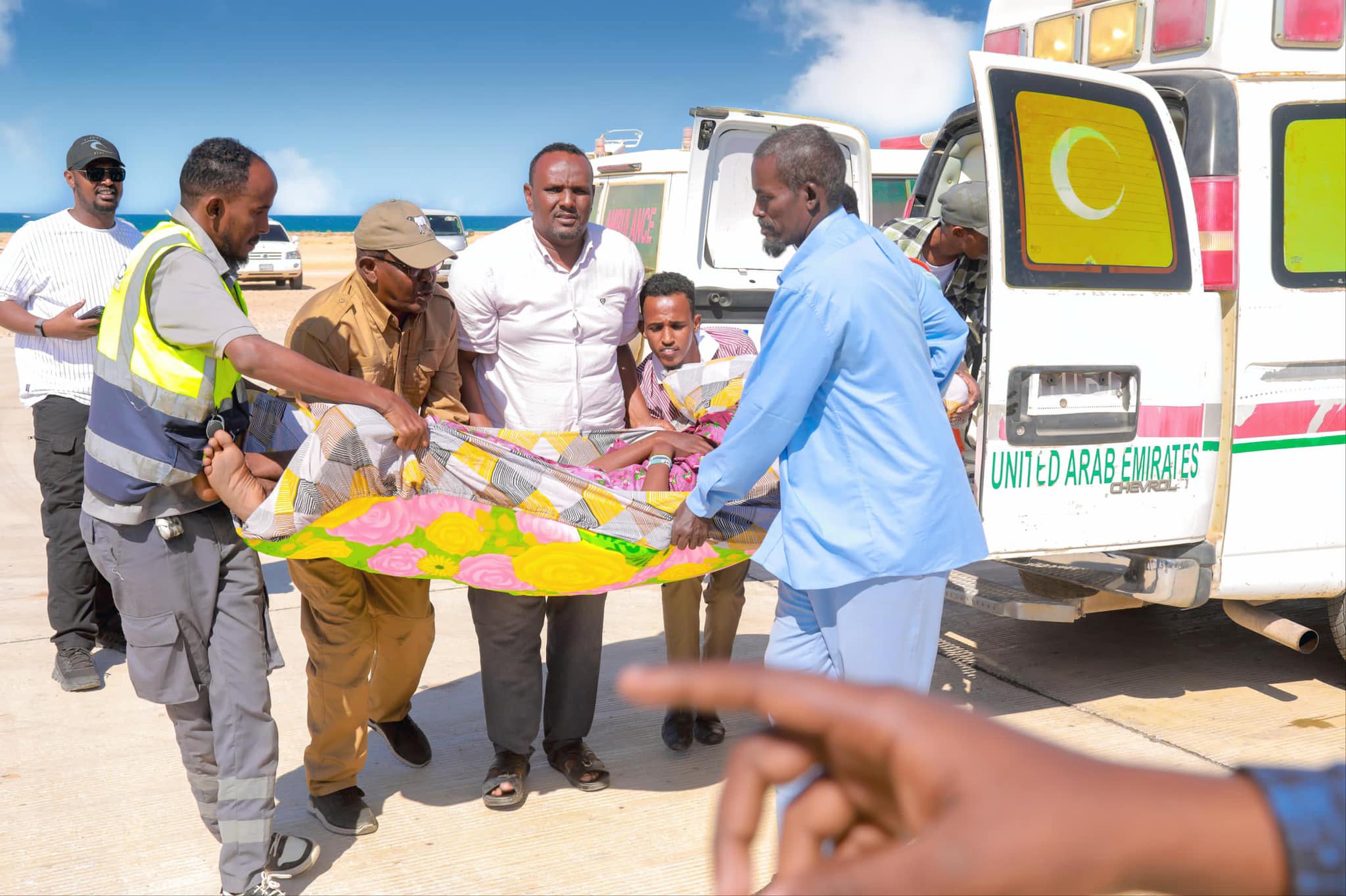
Puntland authorities have successfully airlifted several soldiers who sustained injuries during an ISIS attack on a military base earlier this week. The evacuation was carried out to Ethiopia, where the soldiers will receive advanced medical treatment. This operation was confirmed by the Puntland Defense Forces Command, which stated that the Task Force for Support and Medical Care executed the evacuation under the directives of President Said Abdullahi Deni.
The injured personnel were transported from Bossaso airport on Thursday afternoon, with senior officials in attendance to oversee the process. Among those present were members of the Task Force, Puntland lawmakers, the Director of the Puntland Maritime Police Force, and various aides to the president. While the exact number of injured soldiers has not been disclosed, it was noted that their medical requirements surpassed the capabilities of local healthcare facilities.
In a related context, Puntland forces undertook security operations on Thursday in the vicinity of the Calmadow mountains, particularly in the Timirshe area of the Isku-Shuban district. Military officials indicated that these operations were part of ongoing efforts to enhance security in the region amid a broader anti-terrorism campaign. Following the suicide attack on a Puntland military base in Dharjaalle, which resulted in the deaths of eight ISIS fighters, Puntland has escalated its counterterrorism initiatives under the operation named “Hillaac” (Lightning), targeting both ISIS and Al-Shabaab militants in the challenging mountainous terrain.
.
.
.
#Puntland #Sends #Injured #Soldiers #Ethiopia #ISIS #Assault #Habesha #Latest #Ethiopian #News #Insightful #Analysis
Source link











